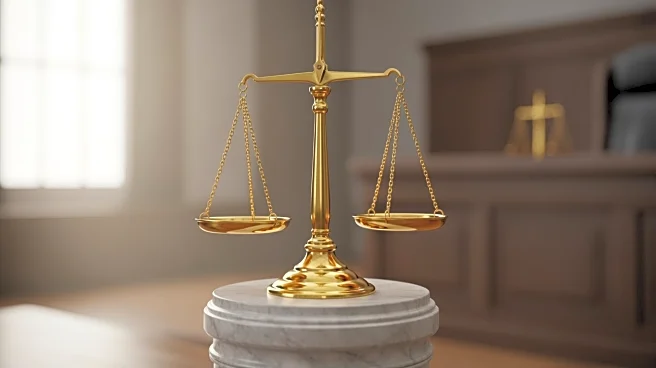What's Happening?
The Trump administration is urging the Supreme Court to allow a Rastafarian inmate to sue Louisiana prison officials for shaving his head, a violation of his religious beliefs. The case, Landor v. Louisiana Department
of Corrections and Public Safety, questions whether the Religious Land Use and Institutionalized Persons Act (RLUIPA) permits inmates to seek monetary damages from state officials for religious rights violations. This marks a shift from the administration's previous stance in a similar case, Tanzin v. Tanvir, where the court allowed damages suits against federal officials. The administration now argues that there is no basis to treat RLUIPA differently from its sister statute, the Religious Freedom and Restoration Act.
Why It's Important?
The case could have significant implications for religious liberty and the extent of protections under RLUIPA. A ruling in favor of the inmate could expand the ability of prisoners to seek damages for religious rights violations, potentially affecting state prison policies nationwide. The case also reflects broader political dynamics, as the administration aligns its position with religious liberty claims that resonate with its base. The outcome may influence future legal interpretations of religious rights and the balance between federal and state authority.
What's Next?
The Supreme Court is set to hear arguments in the case, with a decision expected to clarify the scope of RLUIPA and its application to state officials. The ruling could impact how religious rights are protected in correctional facilities and may prompt legislative or policy changes at the state level. The case has garnered support from various religious groups, indicating its potential to unify diverse stakeholders around religious liberty issues.
Beyond the Headlines
The case highlights the complex interplay between religious rights and state authority, raising questions about the limits of congressional power under the Spending Clause. It also underscores the evolving legal landscape of religious liberty, as courts navigate the balance between individual rights and institutional regulations.










